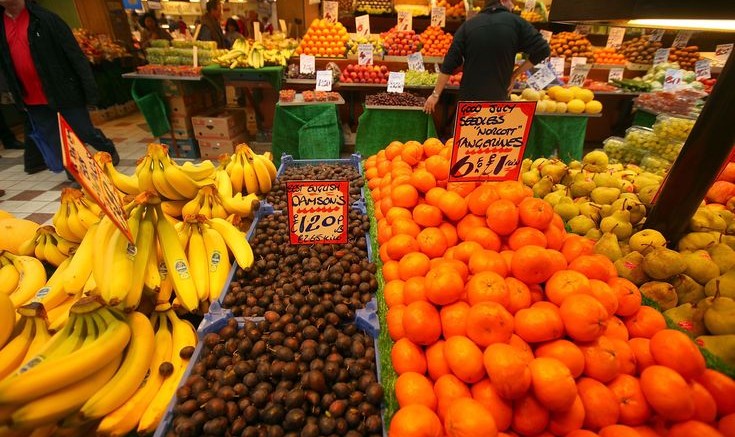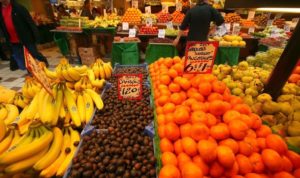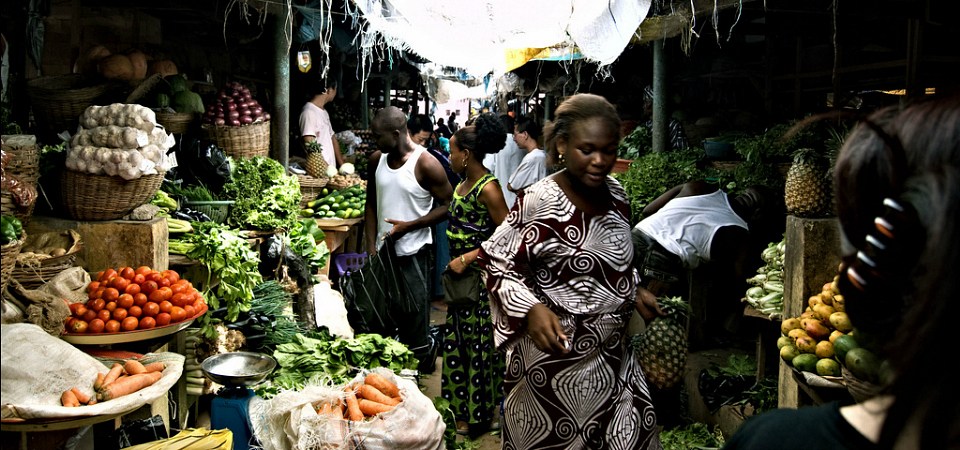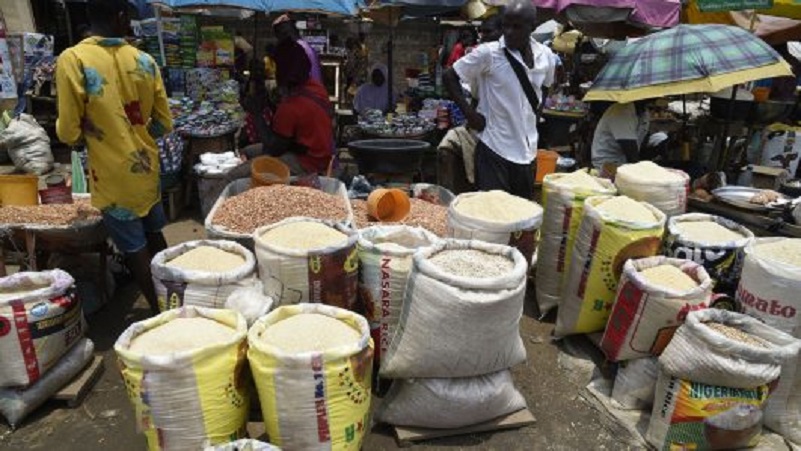Economy
Inflation: Base Effect to bow out as Food Pressures Dictate CPI Tone


By ARM Research
Nigerian inflation continued its descent in May to an annual rate of 16.25%, down from 17.3% in April – the fourth consecutive deceleration in 2017. The moderation in CPI was reflective of another sizable down-leg in core inflation owing to impact of high base effect from 2016.
To be clear, while MoM core inflation was 5bps higher at 1.2% (vs. April reading), the YoY reading materially moderated (-173bps from prior reading to 13% YoY) in the review month to provide validation to our thesis.
Particularly, breakdowns provided revealed that moderations in HWEGF (-314bps to 13% YoY) and other energy-related sub core components were central to the further southward swing in core inflation. To buttress, increases in PMS prices have been subdued (+0.3% YoY to N150.70 per litre).
Notwithstanding the slight temperance in YoY food reading from prior month to 19.27% YoY—a reflection of similar base effects, MoM reading printed at its highest level in 12 months (+2.54% MoM) with the NBS noting highest increases in prices of bread and cereals, meat, fish, tubers, and vegetables.
Though much has been said of the potential impact of Naira appreciation on the food basket—with regards to its capacity to tame rising demand pressures from neighbouring West African countries, structural bottlenecks such as higher transport inflation have largely restricted potential pass-through in our view.
Specifically, transport inflation did not only fail to moderate in the review period, it touched its highest level in 9 months in May (+1.2% MoM) despite reported decline in diesel prices (-5.7% MoM to N216.30).
The pressure from transport largely reflects follow-through from recent price hikes by major transport associations across the country in response to the sharp jump in Diesel prices in December.
However, the recent MoM decline in diesel prices and subdued growth in PMS and cooking gas prices suggest that ongoing reforms are gradually gaining grounds despite current stickiness of transport cost.
Away from the strain from higher transport cost, increased demand for cereals—especially in the predominantly Muslim north—in the bloom of the Ramadan season also added another dimension to the Nigerian food price challenge in May.
Going forward, the continuation of the Ramadan season should leave pressures on cereal prices largely intact. Thus, aided by still elevated transportation cost which have limited gains from an appreciating naira, we remain bearish on food inflation despite ongoing green harvest in the Southern part of the country.
That said, the cumulative benefits of sustained FX policy gains appear to have finally caught up with energy prices given subdued MoM growth in prices of PMS and cooking gas as well as decline in diesel prices in recent readings.
We expect this to lead to a moderation in monthly core inflation reading in June—albeit expected to have a relatively pale influence on YoY reading compared to that from the just ended high base effect from 2016. Overall, our expectations across the core and food inflation buckets should translate to an unchanged headline reading of 16.25% YoY in June 2017.
In terms of market impact, the CBN is expected to maintain its ongoing foreign exchange management policy in line with its guidance at the last MPC.
Specifically, putting subsisting food inflation pressures side by side with the positives from the newly introduced FX window for Investors and Exporters thus far, the CBN is unlikely to be in a hurry to exit its ongoing tight monetary policy and FX market drives. In any case, evidence from last GDP report reveals that the economy is already well on its way to recovery. In the near term therefore, we expect the CBN to sustain its sizable FX supply and aggressive OMO issuances, with the liquidity sapping effect of the duo leaving short term interest rates elevated.
Source: ARM Research
“All rights reserved. This publication or any portion thereof may not be reproduced or used in any manner whatsoever without the express written permission of ARM Securities Limited.”
Economy
Tinubu Okays Extension of Ban on Raw Shea Nut Export by One Year

By Aduragbemi Omiyale
The ban on the export of raw shea nuts from Nigeria has been extended by one year by President Bola Tinubu.
A statement from the Special Adviser to the President on Information and Strategy, Mr Bayo Onanuga, on Wednesday disclosed that the ban is now till February 25, 2027.
It was emphasised that this decision underscores the administration’s commitment to advancing industrial development, strengthening domestic value addition, and supporting the objectives of the Renewed Hope Agenda.
The ban aims to deepen processing capacity within Nigeria, enhance livelihoods in shea-producing communities, and promote the growth of Nigerian exports anchored on value-added products, the statement noted.
To further these objectives, President Tinubu has authorised the two Ministers of the Federal Ministry of Industry, Trade and Investment, and the Presidential Food Security Coordination Unit (PFSCU), to coordinate the implementation of a unified, evidence-based national framework that aligns industrialisation, trade, and investment priorities across the shea nut value chain.
He also approved the adoption of an export framework established by the Nigerian Commodity Exchange (NCX) and the withdrawal of all waivers allowing the direct export of raw shea nuts.
The President directed that any excess supply of raw shea nuts should be exported exclusively through the NCX framework, in accordance with the approved guidelines.
Additionally, he directed the Federal Ministry of Finance to provide access to a dedicated NESS Support Window to enable the Federal Ministry of Industry, Trade and Investment to pilot a Livelihood Finance Mechanism to strengthen production and processing capacity.
Shea nuts, the oil-rich fruits from the shea tree common in the Savanna belt of Nigeria, are the raw material for shea butter, renowned for its moisturising, anti-inflammatory, and antioxidant properties. The extracted butter is a principal ingredient in cosmetics for skin and hair, as well as in edible cooking oil. The Federal Government encourages processing shea nuts into butter locally, as butter fetches between 10 and 20 times the price of the raw nuts.
The federal government said it remains committed to policies that promote inclusive growth, local manufacturing and position Nigeria as a competitive participant in global agricultural value chains.
Economy
NASD Bourse Rebounds as Unlisted Security Index Rises 1.27%

By Adedapo Adesanya
The NASD Over-the-Counter (OTC) Securities Exchange expanded for the first session this week by 1.27 per cent on Wednesday, February 25.
This lifted the NASD Unlisted Security Index (NSI) above 4,000 points, with a 50.45-point addition to close at 4,025.25 points compared with the previous day’s 3,974.80 points, as the market capitalisation added N30.19 billion to close at N2.408 trillion versus Tuesday’s N2.378 trillion.
At the trading session, FrieslandCampina Wamco Nigeria Plc grew by N5.00 to trade at N100.00 per share compared with the previous day’s N95.00 per share, Central Securities Clearing System (CSCS) Plc improved by N4.18 to sell at N70.00 per unit versus N65.82 per unit, and First Trust Mortgage Bank Plc increased by 14 Kobo to trade at N1.59 per share compared with the previous day’s N1.45 per share.
However, the share price of Geo-Fluids Plc depreciated by 27 Kobo at midweek to close at N3.27 per unit, in contrast to the N3.30 per unit it was transacted a day earlier.
At the midweek session, the volume of securities went down by 25.3 per cent to 8.7 million units from 11.6 million units, the value of securities decreased by 92.5 per cent to N80.7 million from N1.2 billion, and the number of deals slipped by 33.3 per cent to 32 deals from the preceding session’s 48 deals.
At the close of business, CSCS Plc remained the most traded stock by value on a year-to-date basis with 34.1 million units exchanged for N2.0 billion, trailed by Okitipupa Plc with 6.3 million units traded for N1.1 billion, and Geo-Fluids Plc with 122.0 million units valued at N478.0 million.
Resourcery Plc ended the trading session as the most traded stock by volume on a year-to-date basis with 1.05 billion units valued at N408.7 million, followed by Geo-Fluids Plc with 122.0 million units sold for N478.0 million, and CSCS Plc with 34.1 million units worth N2.0 billion.
Economy
Investors Lose N73bn as Bears Tighten Grip on Stock Exchange

By Dipo Olowookere
The bears consolidated their dominance on the Nigerian Exchange (NGX) Limited on Wednesday, inflicting an additional 0.09 per cent cut on the market.
At midweek, the market capitalisation of the domestic stock exchange went down by N73 billion to N124.754 trillion from the preceding day’s N124.827 trillion, and the All-Share Index (ASI) slipped by 114.32 points to 194,370.20 points from 194,484.52 points.
A look at the sectoral performance showed that only the consumer goods index closed in green, gaining 1.19 per cent due to buying pressure.
However, sustained profit-taking weakened the insurance space by 3.79 per cent, the banking index slumped by 2.07 per cent, the energy counter went down by 0.24 per cent, and the industrial goods sector shrank by 0.22 per cent.
Business Post reports that 25 equities ended on the gainers’ chart, and 54 equities finished on the losers’ table, representing a negative market breadth index and weak investor sentiment.
RT Briscoe lost 10.00 per cent to sell for N10.35, ABC Transport crashed by 10.00 per cent to N6.75, SAHCO depreciated by 9.98 per cent to N139.35, Haldane McCall gave up 9.93 per cent to trade at N3.99, and Vitafoam Nigeria decreased by 9.93 per cent to N112.50.
Conversely, Jaiz Bank gained 9.95 per cent to settle at N14.03, Okomu Oil appreciated by 9.93 per cent to N1,765.00, Trans-nationwide Express chalked up 9.77 per cent to close at N2.36, Fortis Global Insurance moved up by 9.72 per cent to 79 Kobo, and Champion Breweries rose by 5.39 per cent to N17.60.
Yesterday, 1.4 billion shares worth N46.2 billion were transacted in 70,222 deals compared with the 1.1 billion shares valued at N53.4 billion traded in 72,218 deals a day earlier, implying a rise in the trading volume by 27.27 per cent, and a decline in the trading value and number of deals by 13.48 per cent and 2.76 per cent, respectively.
Fortis Global Insurance ended the session as the busiest stock after trading 193.7 million units for N152.7 million, Zenith Bank transacted 120.7 million units worth N11.1 billion, Japaul exchanged 114.8 million units valued at N407.0 million, Ellah Lakes sold 98.4 million units worth N999.2 million, and Access Holdings traded 63.1 million units valued at N1.7 billion.
-

 Feature/OPED6 years ago
Feature/OPED6 years agoDavos was Different this year
-
Travel/Tourism10 years ago
Lagos Seals Western Lodge Hotel In Ikorodu
-

 Showbiz3 years ago
Showbiz3 years agoEstranged Lover Releases Videos of Empress Njamah Bathing
-

 Banking8 years ago
Banking8 years agoSort Codes of GTBank Branches in Nigeria
-

 Economy3 years ago
Economy3 years agoSubsidy Removal: CNG at N130 Per Litre Cheaper Than Petrol—IPMAN
-

 Banking3 years ago
Banking3 years agoSort Codes of UBA Branches in Nigeria
-

 Banking3 years ago
Banking3 years agoFirst Bank Announces Planned Downtime
-

 Sports3 years ago
Sports3 years agoHighest Paid Nigerian Footballer – How Much Do Nigerian Footballers Earn





















